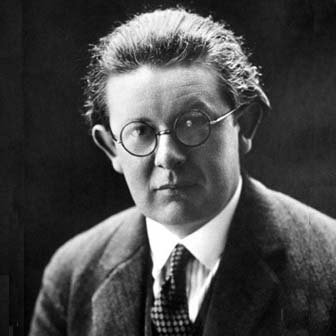
So, as promised: why Brunschvicg claimed “Aristotle had the mental age of an 8-year old.” This was not just a random insult, but highlights a complex, yet forgotten research program in early 20th century French philosophy of science. A thread... 1/17
https://twitter.com/MassSimons/status/1385491418739789824?s=20
Short answer: Jean Piaget! Psychology had a central role in early 20C French #philsci, an aspect that disappeared after WWII, when structuralism took over. Let's have closer look.. 2/ 

Let me start by saying something about Brunschvicg. Though forgotten now, he was one of the most influential French philosophers at the beginning of 20C. He competed with Henri Bergson for the title, and was typically seen as his ‘rationalist’ opponent. 3/
Brunschvicg saw himself as Neokantian, combining themes from French spiritualism (Cousin, Ravaisson, Lachelier) with French positivism, but also had a great interest in Descartes-Spinoza-Pascal. He is partly responsible for the fact that we see Pascal as a philosopher today. 4/
There is a forthcoming great book by Pietro Terzi on Brunschvicg in English, check it out! 'Rediscovery Léon Brunschvicg's Critical Idealism' 5/ bloomsbury.com/au/rediscoveri…
Brunschvicg wrote on mathematics and physics (e.g. causality), though he disliked the term ‘philosophy of science’. Rather his work should be seen as part of a research program that @CChimisso beautifully called ‘writing the history of the mind’. 6/
routledge.com/Writing-the-Hi…
routledge.com/Writing-the-Hi…
The project? To understand modernity and rationality, we have to study the history of our minds. Following Comte, #histsci is the preferred path for French philosophers. To understand the modern mind, look at the premodern mind. Hence historical epistemology. 7/
But this program used more than history of science. There were other methods to study how the human mind came into being. The first was anthropology. Following Lucien Lévy-Bruhl, the premodern mind was (problematically) equated with the ‘primitive’ mind of other cultures. 8/
Similarly, and here we get to the quote, the premodern-primitive mind was also equated with the childish mind. Ontogenesis is phylogenesis: the history of the mind is repeated in every individual that grows up. Study how the child learns, is to study how humanity learned. 9/
The main reference for Brunschvicg, was Jean Piaget' genetic epistemology. Piaget studied at what ages children learned to understand causality, object permanence, etc. Brunschvicg mapped Piaget’s stages to #histsci. Hence Aristotle is stuck at the level of an 8-year-old. 10/
In fact, Brunschvicg makes several claims: Aristotle is sometimes 8 years old, otherwise 9 or 7, depending on the part of nature Aristotle did (not) understand (realism, projectiles, object permanence, causality). 11/
Interestingly, Piaget was influenced by Brunschvicg as well. So he often uses historical metaphors to understand developmental psychology: a child understanding that it was not the center of the universe was similar to the Copernican Revolution. 12/
No wonder that Thomas Kuhn is often criticized for confusing his individual, psychological gestalt shift with scientific revolutions in history. Quite interestingly the story that Kuhn often recalls involved reading Aristotle! Kuhn read Brunschvicg. 13/
sciencedirect.com/science/articl…
sciencedirect.com/science/articl…
For Brunschvicg, this program had broader political stakes: the mature mind is a mind who understands its own relativity, that it is not the center. This is true for developmental psychology, but also for science (theory of relativity) and for politics (altruism, empathy). 14/
There was also a fourth option (besides history of science, anthropology, developmental psychology): psychopathology, especially Pierre Janet. Study the mind by studying how an individual could 'regress' to earlier stages in pathology. 15/
Though influential (e.g. Bachelard, Canguilhem), Brunschvicg is quite forgotten now, as well as the whole psychologist program behind it. Often these authors are reread through structuralist frameworks. Ironically, now the optimistic rationalism seems childish in its own way. 16/
As Raymond Aron, who did his PhD with Brunschvicg stated in 1945: Brunschvicg's “deeply historical philosophy is in a way out of date. […] Brunschvicg is our contemporary, but he is Einstein’s contemporary, not Hitler’s.” 17/END
• • •
Missing some Tweet in this thread? You can try to
force a refresh


